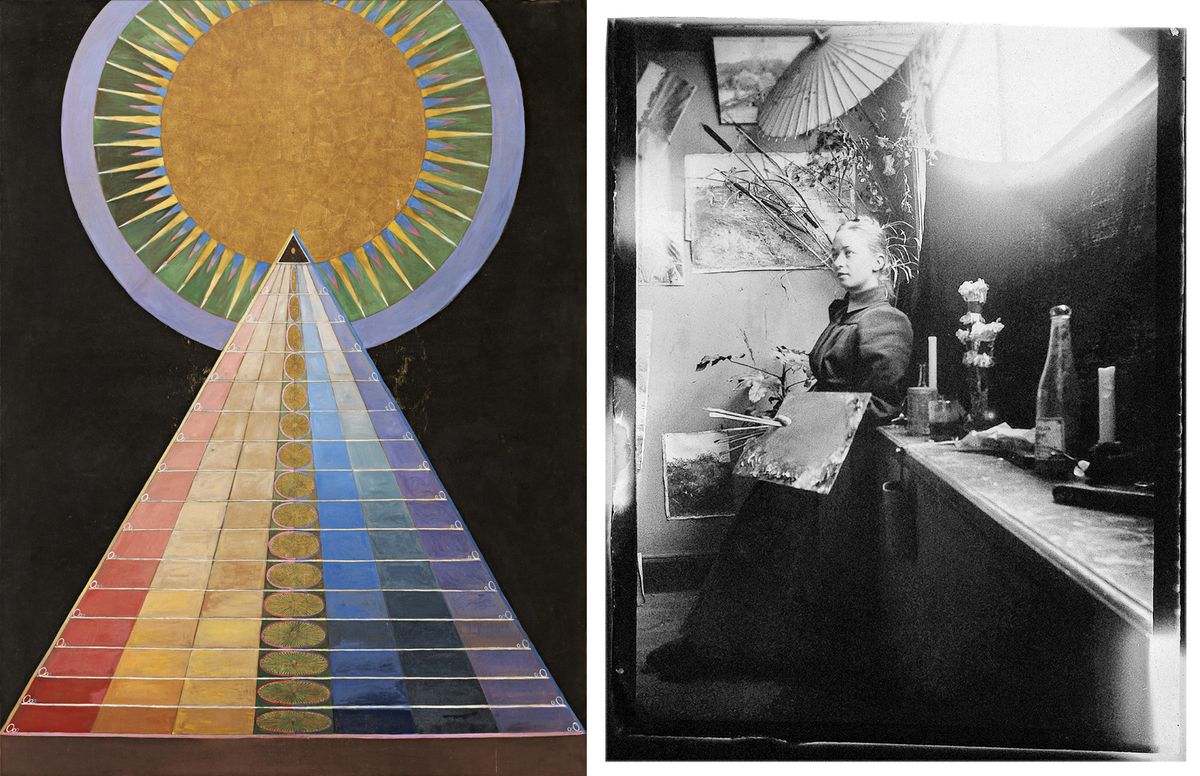NFTs based on the Hilma af Klint series Paintings for the Temple came to auction on 14 November, as the issuer Goda invited buyers to “secure your piece of history”. But with the artist's family refuting the moral validity of the sale, the transaction has come under scrutiny.
The Swedish artist Hilma af Klint (1862-1944) was a “remarkable woman” and “amazing visionary” (to quote Pharrell Williams and Kaws, the promoters of the NFT drop). First and foremost, she was a mystic and a medium who left behind a body of mainly abstract work inspired by her close engagement with spiritual philosophies, including theosophy and anthroposophy.
Af Klint had a message for humanity and, according to Daniel Birnbaum—a long-time champion of her work, whose company Acute Art created a virtual reality temple to “house” Paintings for the Temple—the digital sphere provides a perfect medium for her vision to be delivered. Through the sale of NFTs, “the Temple will be owned by people all over the world,” says Birnbaum, who is also a board member of the Hilma af Klint Foundation.
However, the ownership rights transferred with the NFTs may ring hollow. The tokens are not sold by the Hilma af Klint Foundation, set up in 1972 to preserve and manage the legacy of the artist, but by Acute Art and the publishing house Bokförlaget Stolpe. Stolpe is the publishing arm of the Axel and Margaret Ax:son Johnson Foundation for Public Benefit, one of Sweden’s largest private foundations, which supports scholarly research.
Three individuals from the Ax:son Johnson Foundation, including its chief executive Kurt Almqvist, also sit on board of the Hilma af Klint Foundation, effectively running it, says Johan af Klint. Johan was the former chair of the Hilma af Klint Foundation and devoted a large part of his life to bringing the work of his grand-aunt to critical acclaim. It is through this complicated web of board relationships, which inevitably create all sorts of conflicts of interest, that the sellers gained access to digital images of the work.
Johan af Klint and his niece Hedvig Ersman feel responsibility to protect their ancestor’s artistic and spiritual legacy and have expressed strong objections against the sale. Moreover, NFTs may pose a copyright infringement: the digital works are sold by a third party who does not own the originals. As a case in point, the Goda founder Todd Kramer tweeted an installation view of the Hilma af Klint NFTs presented in his gallery: in other words, jpegs, widely available online, here uploaded onto individual screens.
Despite the copyright expiring in 2014, the perpetual protection of moral rights of the work can still be effectuated: as the descendants point out, Hilma af Klint did not want her creations to be commercialised. While the artist did sell her naturalistic paintings, she kept her abstract work secret and only shared it in anthroposophical circles, including with her spiritual guru Rudolf Steiner. Moreover, Af Klint intended for the Paintings for the Temple series to be kept and displayed together as one meta-project: a project for connecting with the divine. The sellers did not respond to an invitation to comment on the Af Klint family's claims that the NFTs are invalid.


